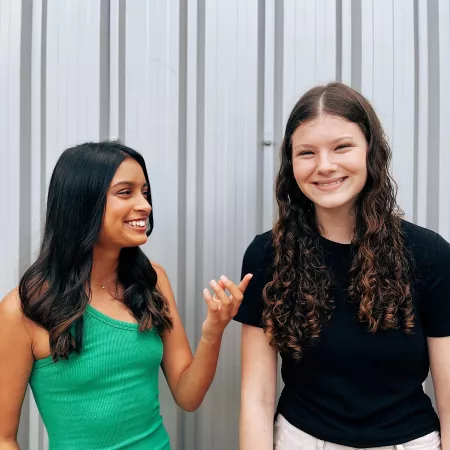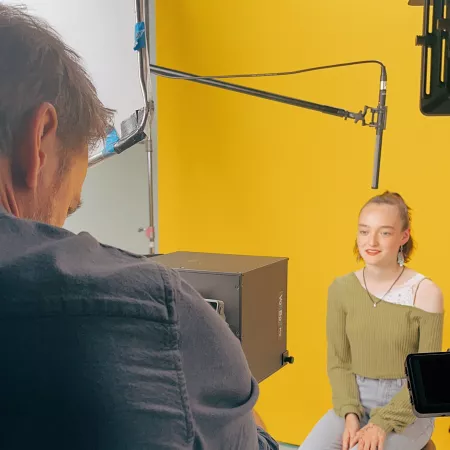
I had my first seizure on my 18th birthday.
I had to convince my parents that I hadn't taken any drugs or anything because it just came as such a shock to everyone. I was a really healthy 18-year-old and it came out of nowhere. It's weird when you get diagnosed, I think you kind of go into a state of shock. You don't believe it could happen to you. It's like your body doesn’t feel like your body.
My diagnosis couldn’t have come at a worse time for me as I was doing A-levels at the time I was having my first seizures. I was given medication, and I think the combination of the seizures and the stress of the new diagnosis had a huge effect on me and my education.
I’d always wanted to go to university, my brother had been and I wanted to follow in his clever footsteps.
However, results day came around and I just didn't get the grades that I needed for university. The shock of opening up the letter and the stress of not being able to go to university with my friends, was really really upsetting. It is so disheartening, you feel like you've tried your hardest, and it's still not good enough.
It made me feel so helpless about my condition.Charlotte
I’ve never been one to give up and I had my sights set on going to Uni, so I re-sat my A-levels. But my seizures still weren’t under control and my medication was up in the air, so I still didn’t get the grades I needed. It was all starting to feel too much, and was having a huge effect on my mental health, leading to panic attacks and anxiety.
I still didn’t give up.
I went to Liverpool Community College, to redo biology and read an article about a summer school fast track course to get into Edge Hill University. So I went to summer school. Although it was a lot of work (Monday-Friday, 9-5pm for a couple of months), the summer school was helpful because I got to really apply my knowledge and they got to see how clever I knew I was.
I’d finally got the grades and been accepted into University, but the hard work didn’t stop there.
I was a bit upset during the transition to university, the first time. When you start university you get a personal tutor, and this who I directed all my questions to. My tutor was very supportive and helpful giving me advice on additional conditions and disabilities.
It wasn’t only the work that my epilepsy affected, but also my enjoyment of university life because it impacted my social activities. Everyone wants to enjoy Freshers Week, stay up all night and drink a lot of alcohol, but that's not something you can do all the time when you have epilepsy. You want to fit in with everyone, want to be normal, but you have to look after yourself. There were a few times when I didn't look after myself, and I should have done, and it doesn't help anyone.
The daily impact of epilepsy at the start of uni was quite high because I had to travel a lot and it meant getting up early and my trigger is lack of sleep and stress. So, when it came to the demands and stresses of university life, that was something that did impact my seizures.
I knew that I had to ask for help, but I didn’t want to be different from other people, but it matters, and it makes the world of difference. I did ask for help, I got support like extra time for exams, and when I did a resit, the mark wasn’t capped.
I am studying my second degree now; my first degree was in Child Health and Wellbeing. I did well in my degree and got a first, humble brag, but I’m really proud that I stuck at it through some really challenging knock backs.
Whatever happens this results day, you're still you. You’re still going to go through and do all of the things that you want to do. It might just be a slightly different angle. Do your research and accept all of the help that you're offered, it doesn't make you any different, it puts you on the same playing field as everyone else. It makes it fair.




